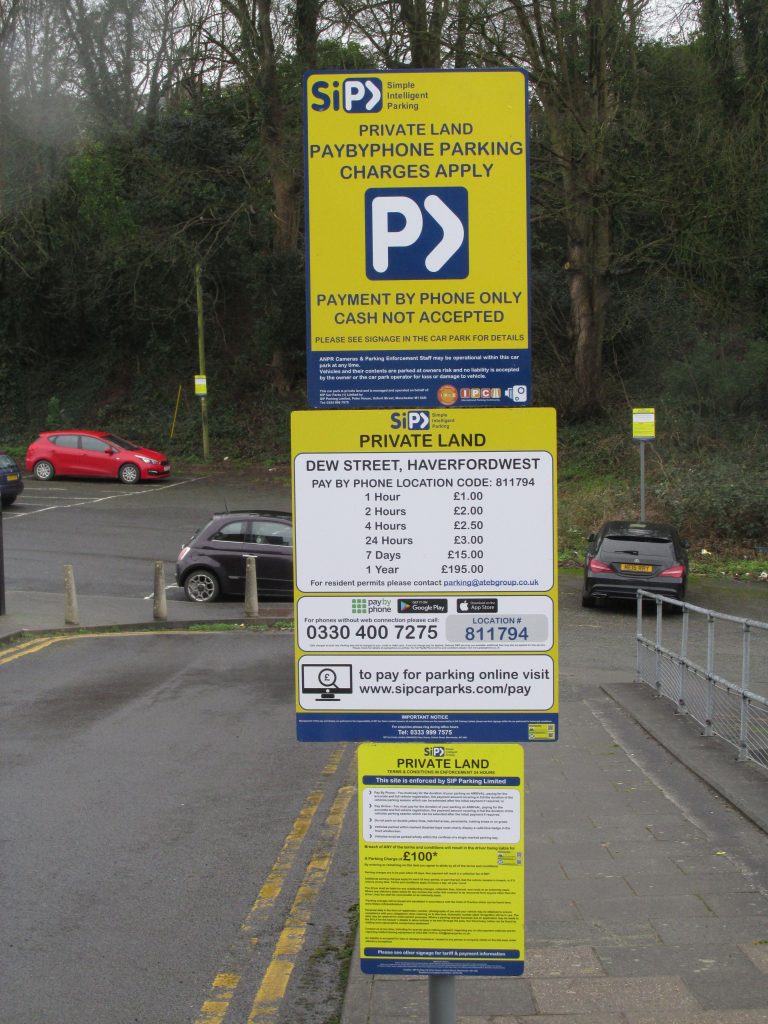News
Challenges and Future Outlook:Bitcoin in Online Retail

Bitcoin, the pioneering cryptocurrency, has made significant strides in recent years, infiltrating various sectors of the economy. As individuals explore the complexities and opportunities of this digital currency, educational resources like an investment education firm provide valuable insights. More information on Bitcoin’s potential can be found within these resources. Online retail, in particular, has witnessed the gradual adoption of Bitcoin as a means of payment. This article delves deep into the challenges and future outlook of Bitcoin in online retail, offering an informative analysis of its potential implications.
The Rise of Cryptocurrencies in E-commerce
The e-commerce industry has experienced explosive growth in the digital age, and the need for secure and efficient payment methods has never been greater. This shift has paved the way for cryptocurrencies like Bitcoin to gain prominence. A decentralized digital currency, Bitcoin offers several advantages, including faster transactions and lower fees compared to traditional payment methods.
Recent statistics indicate that a growing number of online retailers are embracing Bitcoin as a payment option. Companies like Overstock, Newegg, and Shopify have integrated Bitcoin payment gateways into their platforms, offering customers an alternative way to make purchases.
Advantages and Challenges of Bitcoin in Online Retail
Advantages
Bitcoin provides several benefits for both online retailers and consumers. It offers near-instantaneous transactions, reducing the waiting time associated with traditional payment methods. Additionally, Bitcoin transactions typically involve lower fees, making it an attractive option for businesses looking to cut costs.
Bitcoin also caters to a global audience. As a borderless currency, it eliminates the need for currency conversion, making international transactions more accessible and cost-effective.
Challenges
Despite its potential, Bitcoin adoption in online retail faces several challenges. One of the foremost concerns is price volatility. The cryptocurrency market is notoriously unpredictable, with Bitcoin’s value subject to rapid fluctuations. Retailers accepting Bitcoin may encounter difficulties in managing these price fluctuations and may need to adjust prices frequently.
Another challenge is the limited acceptance of Bitcoin among mainstream consumers. Many people remain unfamiliar with how cryptocurrencies work, which can hinder their willingness to use Bitcoin for online purchases. Moreover, security concerns and the risk of fraud are prevalent in the cryptocurrency space, further complicating its adoption.
Regulatory Environment and Compliance
The regulatory landscape surrounding cryptocurrencies is evolving. Governments and financial authorities worldwide are working to establish clear guidelines for the use of Bitcoin and other digital currencies. These regulations aim to combat money laundering, fraud, and other illicit activities while promoting legitimate cryptocurrency use.
Retailers must remain vigilant and ensure compliance with relevant regulations. Failure to do so can result in legal repercussions and damage a company’s reputation. Compliance may involve identity verification for customers, transaction reporting, and adhering to tax regulations related to cryptocurrency transactions.
Technology and Security Considerations
To accept Bitcoin payments, online retailers need to invest in the necessary technological infrastructure. This includes setting up a secure digital wallet, integrating payment gateways, and training staff to handle Bitcoin transactions effectively.
Security is paramount when dealing with cryptocurrencies. Online retailers must implement robust cybersecurity measures to protect customer data and funds. Multisignature wallets, cold storage, and regular security audits are essential components of a secure Bitcoin payment system.
Case Studies: Successful Implementation in Online Retail
Several online retailers have successfully integrated Bitcoin into their payment systems. For instance, Overstock reported an increase in sales after accepting Bitcoin as a payment method. Newegg, a leading tech-focused e-commerce platform, has also experienced positive results with Bitcoin adoption.
These case studies illustrate that, when implemented correctly, Bitcoin can enhance customer engagement and provide a competitive advantage in the online retail market.
The Future Outlook for Bitcoin in Online Retail
The future of Bitcoin in online retail is promising yet uncertain. As cryptocurrencies become more mainstream, it is likely that more retailers will embrace Bitcoin and other digital currencies. However, widespread adoption hinges on several factors, including regulatory clarity, increased awareness, and improvements in user-friendly interfaces.
Innovations in blockchain technology and payment processing solutions may further boost Bitcoin’s utility in online retail. For example, the development of second-layer solutions like the Lightning Network aims to address Bitcoin’s scalability issues, making it even more suitable for day-to-day transactions.
Conclusion
In conclusion, Bitcoin’s integration into online retail offers both opportunities and challenges. While it provides faster transactions, lower fees, and global accessibility, retailers must contend with price volatility, regulatory compliance, and cybersecurity concerns. The future outlook for Bitcoin in online retail is promising, contingent upon regulatory clarity, enhanced awareness, and ongoing technological advancements. As cryptocurrencies evolve, retailers that successfully navigate these hurdles may find themselves poised for success in the digital commerce landscape.
Community
New parking rules spark concern at Dew Street site

Residents question phone-only payments, rising permit costs and future of former library building
RESIDENTS in Haverfordwest’s upper town say new parking rules behind the former County Library on Dew Street risk excluding older and less tech-savvy drivers, as concerns grow over both rising permit prices and the uncertain future of the prominent community building.
The car park is owned by Ateb Group, which allowed free public use over Christmas. However, signs installed this week state that drivers must pay either by phone or online.
Campaigners say both options effectively require a smartphone or internet access, leaving some motorists without a practical way to pay.
Mike Daffern, acting secretary of the Dew Street Campaign, told The Herald: “Realistically these are the same method. Both depend on a phone. For many older people, or anyone without mobile data, that simply isn’t accessible.
“Government guidance says there should be more than one way to pay. Most car parks still offer cash or card. We feel this discriminates against some of the very people who rely most on town centre parking.”

Permit prices questioned
Residents also say they were previously informed that Ateb intended to mirror the charging structure used by Pembrokeshire County Council.
They expected this would reduce the cost of residential permits. Instead, several have reported being quoted figures more than four times higher than equivalent council permits, alongside what they describe as a 30 per cent rise on last year.
One nearby resident, who did not wish to be named, said: “We were told it would be in line with the council. When the price came through it was nowhere near. For some households it just isn’t affordable.”
The Herald has approached Ateb for clarification on its pricing structure and the choice of payment systems.
Building left in limbo

Beyond parking, frustration is mounting about the long-term future of the former library itself.
Planning permission to refurbish the site was granted in 2023, but residents say little visible progress has been made. There is speculation the housing association may instead base operations in Milford Haven following the closure of Meyler House.
Campaigners argue that if the building is no longer required for offices, alternative community uses should be explored rather than allowing further deterioration.
A petition signed by ninety-five locals has been submitted to Cadw requesting the structure be considered for listing.
The request is backed by Royal Commission on the Ancient and Historical Monuments of Wales and The Twentieth Century Society, both of which recognise its architectural significance as an example of late 20th-century civic design. The building also features in Simon Phipps’ book Brutal Wales / Cymru Friwtalaidd, which celebrates modernist architecture across Wales.
Mr Daffern said: “It’s part of Haverfordwest’s story. Even people who don’t love the look of it accept it’s an important public building. Leaving it empty helps no one.”

Temporary arrangement
Public use of the car park may only ever be short-term. The 3.5-acre site, including the former library, was sold by the council for £250,000 in 2022.
A consultation held in early 2024 on potential redevelopment proposals drew criticism, with some residents describing suggested housing plans as “cut-price” and out of keeping with the conservation area surrounding the historic upper town.
No formal planning application has yet been submitted.
Residents say clearer communication is needed on both the future of the land and day-to-day parking arrangements.
Mr Daffern added: “People understand the site will change one day. But while it’s open, it should be fair and accessible. All we’re asking for is common sense and proper engagement with the community.”
international news
Mandelson quits Labour over Epstein controversy

Former cabinet minister says stepping down is ‘in best interests of the party’ as questions raised over historic payments
LORD MANDLESON has resigned his membership of the Labour Party, saying he does not want to cause “further embarrassment” following renewed controversy over his past links to convicted sex offender Jeffrey Epstein.
The former cabinet minister and one-time UK ambassador to the United States confirmed his decision in a letter to Labour’s general secretary after fresh documents released by the US Department of Justice appeared to reference him in connection with Epstein’s finances.
The files suggest that three payments of $25,000 — totalling $75,000, about £55,000 at today’s exchange rates — were allegedly made to Peter Mandelson in 2003 and 2004.
Lord Mandelson said he had “no record or recollection” of the transactions and believes the allegations may be false, but intends to investigate the matter himself.
In his resignation letter, he wrote that he felt “regretful and sorry” to be linked again to what he described as the “understandable furore” surrounding Epstein.
He added that stepping down from party membership was the responsible course of action while he reviewed the claims.
“I do not wish to cause further embarrassment to the Labour Party,” he said. “I have dedicated my life to the values and success of the party and believe I am acting in its best interests.”
Ambassador role ended
Lord Mandelson had been appointed the UK’s ambassador to Washington by Prime Minister Keir Starmer in December 2024.
However, he was removed from the post last year after earlier revelations about his past friendship and contact with Epstein, including emails showing communication after the financier’s 2008 conviction.
The latest release of files has also included photographs said to show Lord Mandelson alongside an unidentified woman. He said he could not place the location or circumstances of the images.
There is no suggestion that appearing in the documents or photographs indicates criminal wrongdoing.
‘Deep regret’
Earlier this weekend, Lord Mandelson reiterated his regret for ever having known Epstein and apologised “unequivocally” to the women and girls who suffered abuse.
“I want to repeat my apology to the women and girls whose voices should have been heard long before now,” he said.
Epstein died in prison in 2019 while awaiting trial on sex trafficking charges, but investigations into his network of associates continue to generate political fallout on both sides of the Atlantic.
Labour has not yet issued a detailed statement beyond confirming it had received Lord Mandelson’s resignation.

Health
Doctor struck off after sexual misconduct findings at Withybush Hospital

Hospital medic erased from register for second time after tribunal finds abuse of trust and repeated inappropriate behaviour
A DOCTOR who worked at Withybush Hospital has been struck off the medical register after a tribunal found he sexually harassed junior colleagues and abused his position of trust.
Dr Velmurugan Kuppuswamy was erased from the register by a panel convened by the General Medical Council following findings that he made inappropriate sexual comments, engaged in unwanted physical contact, and displayed what was described as a pattern of sexually motivated behaviour towards more junior members of staff.
The Medical Practitioners Tribunal Service heard the misconduct occurred over several weeks between August and September 2021 while he was working at the Haverfordwest hospital.
The panel concluded he made inappropriate remarks to female colleagues at a social event and touched staff without their consent. His conduct was described as repeated, targeted, and exploitative of the power imbalance between senior and junior medics.
Catherine Moxon, chairing the tribunal, said the behaviour represented a clear abuse of his professional position and a serious failure to maintain appropriate boundaries.
The tribunal found his actions undermined colleagues’ dignity and confidence and risked damaging public trust in the medical profession.
Although Dr Kuppuswamy denied the allegations and pointed to his clinical competence, the panel ruled the misconduct was serious, persistent, and not easily remediable. Erasure, it said, was necessary to protect the public and maintain confidence in doctors.
His name has now been removed from the medical register with immediate effect.
Troubled history
This is not the first time Dr Kuppuswamy’s fitness to practise has been called into question.
Tribunal records show he was previously struck off in 2012 after being found dishonest during an application and interview for a postgraduate cardiology training post at an NHS deanery in England.
The earlier hearing found he falsely claimed to have submitted a Doctor of Medicine thesis, said he was a member of the Royal College of Physicians, and stated he had passed a practical clinical skills assessment.
He initially admitted the deception before retracting parts of his account. The tribunal concluded he had maintained dishonest accounts and wrongly accused another witness of misleading evidence.
He was erased from the register and returned to India, where he later worked at a cardiac hospital.
Return and fresh concerns
In 2020, he successfully applied to be restored to the UK register despite opposition from the GMC, which raised concerns about the timing of his remorse and the lack of independent evidence about his overseas work. The regulator also noted he had not undertaken ethics training.
At the time, a tribunal accepted his assurances that he had changed, describing his evidence as “compelling, heartfelt and genuine,” and concluded that a well-informed member of the public would not be concerned about his return.
Shortly after being reinstated, he began working shifts at Withybush Hospital, part of Hywel Dda University Health Board.
Within months, the fresh allegations that have now led to his second erasure emerged.
The health board has not publicly commented on the outcome of the hearing.
-

 Health3 days ago
Health3 days agoConsultation reveals lack of public trust in health board
-

 News5 days ago
News5 days agoCaldey still unsafe, survivors warn — despite Abbey’s reform claims
-

 Community4 days ago
Community4 days agoPembrokeshire students speak at national Holocaust Memorial Day event
-

 News6 days ago
News6 days agoWales warned against single police force as Lib Dems cite Scotland ‘lesson’
-

 Crime6 days ago
Crime6 days agoMilford Haven man appears in court charged with burglary and GBH
-

 Business6 days ago
Business6 days agoDuke of Edinburgh Inn in Newgale on the market for £325,000
-

 Local Government7 days ago
Local Government7 days agoPembrokeshire council house rents to increase this year
-

 Local Government6 days ago
Local Government6 days agoTribunal over former Neyland councillor’s conduct adjourned
















